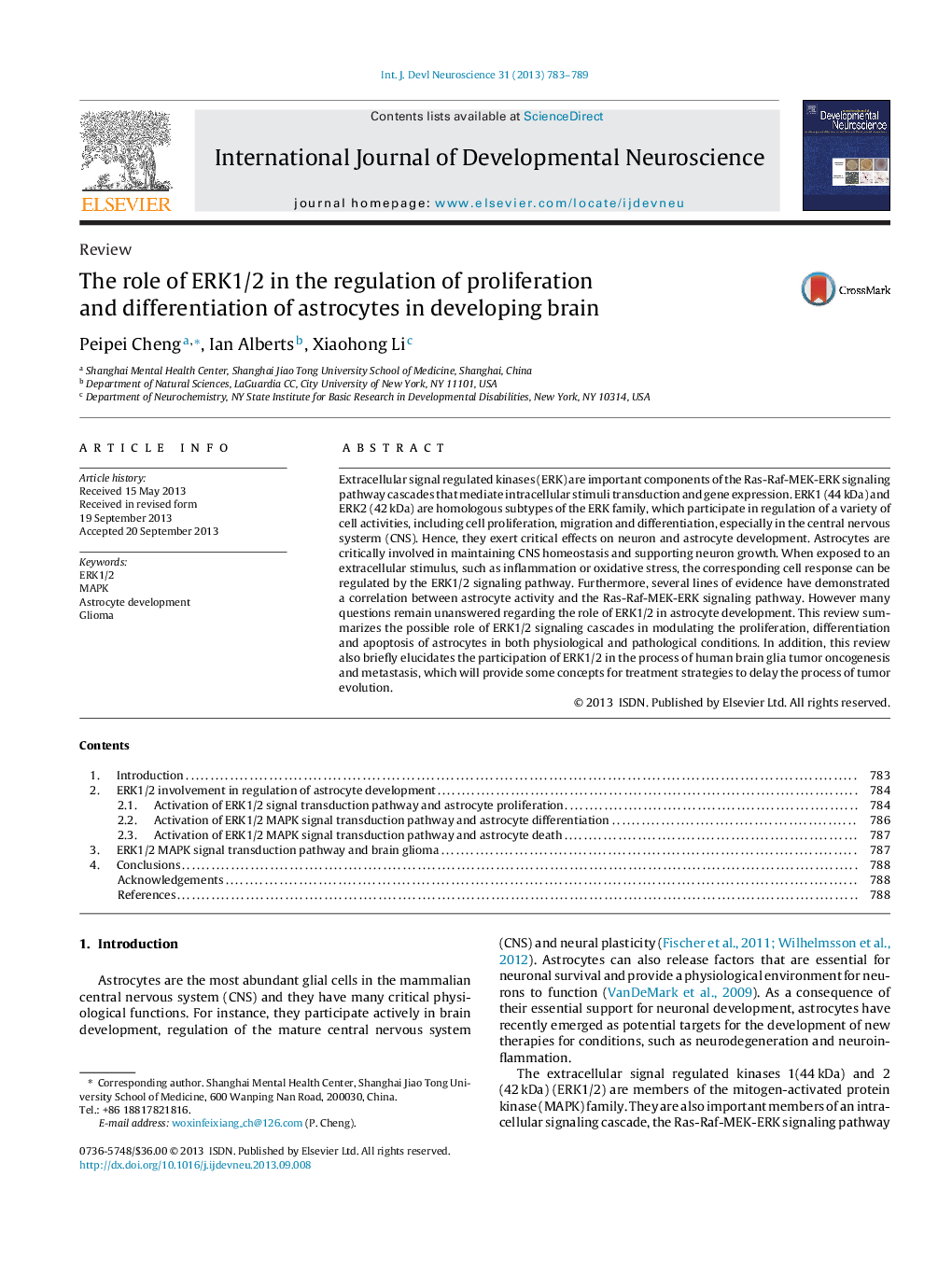| Article ID | Journal | Published Year | Pages | File Type |
|---|---|---|---|---|
| 2786151 | International Journal of Developmental Neuroscience | 2013 | 7 Pages |
•Activation of ERK1/2 pathway is essential for astrocyte proliferation and growth.•ERK 1/2 activity is a key mediator of astrocyte migration and differentiation.•ERK1/2 pathway is involved in the regulation of neuron and astrocyte death.•Activation of ERK1/2 pathway is involved in the pathogenesis of brain tumors.
Extracellular signal regulated kinases (ERK) are important components of the Ras-Raf-MEK-ERK signaling pathway cascades that mediate intracellular stimuli transduction and gene expression. ERK1 (44 kDa) and ERK2 (42 kDa) are homologous subtypes of the ERK family, which participate in regulation of a variety of cell activities, including cell proliferation, migration and differentiation, especially in the central nervous systerm (CNS). Hence, they exert critical effects on neuron and astrocyte development. Astrocytes are critically involved in maintaining CNS homeostasis and supporting neuron growth. When exposed to an extracellular stimulus, such as inflammation or oxidative stress, the corresponding cell response can be regulated by the ERK1/2 signaling pathway. Furthermore, several lines of evidence have demonstrated a correlation between astrocyte activity and the Ras-Raf-MEK-ERK signaling pathway. However many questions remain unanswered regarding the role of ERK1/2 in astrocyte development. This review summarizes the possible role of ERK1/2 signaling cascades in modulating the proliferation, differentiation and apoptosis of astrocytes in both physiological and pathological conditions. In addition, this review also briefly elucidates the participation of ERK1/2 in the process of human brain glia tumor oncogenesis and metastasis, which will provide some concepts for treatment strategies to delay the process of tumor evolution.
